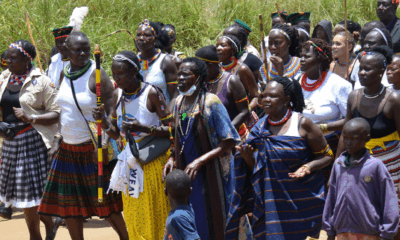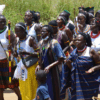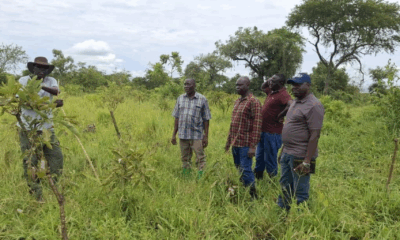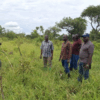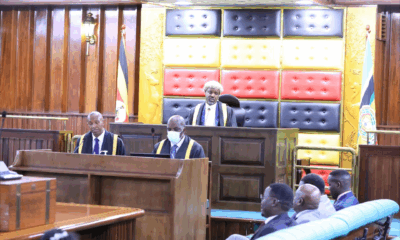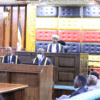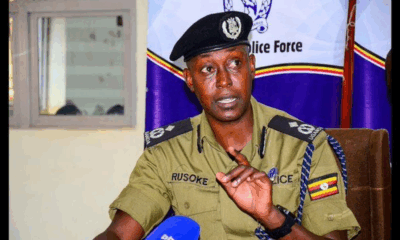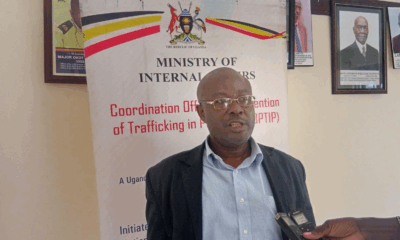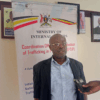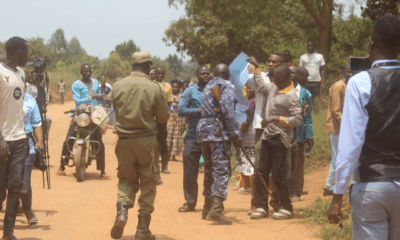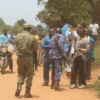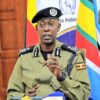Crime and Security
New Study Exposes Military’s Deep Grip on Ugandan Politics
Researchers, politicians raise alarm over UPDF’s deepening role in civilian governance and its implications for democracy
A new study has ignited fresh debate on Uganda’s democratic future, spotlighting the Uganda People’s Defence Forces (UPDF) as a dominant political force threatening civilian authority and democratic transition. Titled “Guns Everywhere!: The Military and Transition Politics in Uganda,” the study warns that the country is on a dangerous path where guns—not governance—determine power.
Authored by researchers Godber Tumushabe, Andrew Karamagi, Barnet Musasizi, and Job Kiija, the study accuses the UPDF of evolving from a national defence institution into a partisan tool of the ruling National Resistance Movement (NRM) party. It paints a sobering picture of a militarised political environment with growing repression of dissent and a shrinking space for democracy.
“The UPDF’s influence has eroded the consensus of the 1995 Constitution and undermined civilian oversight,” said Tumushabe, a lawyer and policy analyst. “We are witnessing a systematic democratic reversal.”
The study comes at a critical time as Uganda gears up for the 2026 general elections, with tensions rising over the military’s role in maintaining the political status quo. Researchers warn of a potential “Warrior Mad King” scenario, in which President Yoweri Museveni clings to power while grooming his son, Gen. Muhoozi Kainerugaba, to lead the military in silencing opposition voices.
The 118-page study relies on a qualitative methodology, analysing statutes, media coverage, policy documents, and insights from key informants in the military, law enforcement, and civil society. Its conclusions are stark: Uganda has never had a truly national army, from the colonial King’s African Rifles to the modern UPDF, which retains the ideological identity of the National Resistance Army (NRA) that brought Museveni to power in 1986.
Despite reforms over the years, the researchers argue that the UPDF remains deeply loyal to Museveni and functions as a power enforcer for the regime rather than an impartial national institution.
Maj Gen (Rtd) Mugisha Muntu, a former army commander and now leader of the Alliance for National Transformation (ANT), echoed the concerns raised in the study. “This is not just about the guns—it’s about power and the manipulation of national institutions,” Muntu said. “Security has become a political weapon, wielded by those whose interest lies in staying in control.”
Muntu emphasised the need for a citizen-driven shift in power dynamics. “With 45 million Ugandans, the question is not whether change is possible, but whether enough people are willing to demand it. Democracy won’t rain from the sky—it must be fought for.”
Adding urgency to the warnings is the Uganda Peoples’ Defence Forces (Amendment) law, enacted in May 2025, which the authors say further entrenches military power by weakening civilian checks and enabling broader deployment of the army in civil spaces.
The study argues that the military’s growing hold over key state institutions—including the Electoral Commission, intelligence services, and even aspects of the judiciary- amounts to a “slow-motion military coup.” It notes that these developments, combined with ethnically charged deployments and partisan allegiance, have pushed Uganda further from the democratic path.
Despite these concerns, the study offers a glimmer of hope: that civic awareness and sustained pressure can alter the trajectory. The researchers urge citizens, civil society, and international actors to focus on reasserting civilian authority, reactivating democratic institutions, and pushing for transitional justice and accountability.
As Uganda edges closer to the 2026 elections, the role of the military is increasingly under the spotlight. The findings of “Guns Everywhere!” serve as a clarion call to Ugandans and the international community to recognise the fragility of the country’s democratic gains and to take deliberate steps toward restoring balance between state power and civilian governance.
“The future is not sealed,” said Karamagi, one of the study’s co-authors. “But it depends on what Ugandans choose to tolerate, and what they choose to resist.”
Comments






